Introduction
The Amalgamation of Nigeria in 1914 saw the country become largely heterogeneous and diverse in language, religion and tribe etc. A major concept that has been brought to the fore with regards to development and progress of the nation is national integration. This is the concept that favours the idea of the awareness of a common identity amongst citizens of a country. However, despite the efforts that have been put towards achieving this goal, the country has over the years been faced with numerous challenges that have impeded national integration. The events that unfolded from postcolonial years from 1960 to the start of the Nigeria-Biafra civil war in 1967 had a devastating effect on the unity of the then new nation. Fifty-five years down the line the unity of the nation is still a hard feat to achieve.
At the start of this research, the aim and objective was to adequately analyze how IPOB activities and secession struggles have affected national cohesion in Nigeria. Having been in service to my country for a few months, under the auspices of the National Youth Service Corps. A mandatory one-year programme for graduates of tertiary institutions with the aim of inculcating the spirit of selflessness and oneness in the Nigeria Youth. Also, being posted to serve in Anambra state, one of the centers of IPOB activities in the southeastern region, has given me a front row experience in all of these. It is safe to say that I have had a fair share of uncertainty, confusion, fear and frustration as a result of the constant insecurity and breakdown of law and order that has ravaged the region. This generated some many thoughts and questions in me as It revealed things on a much deeper level. There seemed to be a paradigm shift in the Biafran movements of old and the IPOB of recent times. Perhaps, had there been a change in ideology? If indeed this struggle was for the emancipation of the Igbos, why then did it seem to have generated into a nuisance that constantly threatens the peace of the eastern region? Has the struggle been genuine all along? These, and other questions led to the discovery of a new controversy. Perhaps, the issue on ground is not really about national integration, but internal integration. Or, the recent deviation from its initial course has thrown the people who once supported the movement into a state of utter confusion. In the course of the interview, I also realized that people were more willing to share personal experiences of how IPOB has affected them. The realization of the uncertainty and fear that has shrouded the atmosphere, makes one wonder if IPOB has not as a statement of fact shot itself in the foot. It therefore became imperative to tailor this study along the lines of the people’s experiences.
Clarification of concepts (IPOB/ESN)
IPOB, is an acronym for Indigenous People of Biafra, while ESN stands for Eastern Security Network. Albeit, they both serve the same purpose. The Indigenous People of Biafra (IPOB) is a secessionist movement founded in 2012 from southeast Nigeria with the purpose of restoring the defunct Biafra, however, through peaceful means. The group is said to have originated from a similar group – Movement for the Actualization of Sovereign State of Biafra (MASSOB) and the Biafran Zionist Movement (BZM) and although they shared a common goal they however carried out their activities in a less radical manner. Ekpo and Agorye, 2018 acclaimed that it was the inability of MASSOB to achieve its goal that paved the way for the emergence of IPOB, a more radical group.[1]
For IPOB, it was a quest for self-determination for the Igbos, an advocacy for the rights and freedom of what was left of Biafra. The group since its inception in 2012 under the leadership of Nnamdi Kanu and his assistant Uche Okafor-Mefor has agitated for an independent state for the Eastern region through referendum. The group itself rose and gained its ideologies in solidarity to the secessionist Biafra that existed in the Southeastern region from May 30th 1967 to January 15th 1970. Various reasons constituted the ultimate call for secession by Biafra, such as economic depletion, ethnic and religious tensions as well as failure of the government in power then-Yakubu Gowon to implement the new Aburi Accord. The secession at this time was led by the military governor of the Eastern Region, Col. Chukwuemeka Ojukwu on May 30th, 1967. Today the major flag bearers for the IPOB movement are the South-eastern states of Nigeria namely: Anambra, Enugu, Abia, Imo and Ebonyi state.
The concept of National Integration
National integration or nation building or national unity etc, can be best expressed as a concept. According to Jega, national integration involves a situation in which citizens of a country increasingly see themselves as one people, bound by shared historical experiences and common values, and imbued by the spirit of patriotism and unity, which transcends traditional, primordial diverse tendencies.[2]
National integration is essential for maintaining the stability of any country and with stability comes development. In a country like Nigeria that is very rich in her diversity and as a home to hundreds of ethnic groups, if it is to achieve a unified state with sustainable development, then such a thing as national integration is imperative. It is important to state that there is hardly any country that is homogeneous so, national unity in this sense does not necessarily connote the absence of our individual differences; rather, it speaks for unity in spite of these differences.
Global Context
Secession, a term which according to the Cambridge advanced learner’s dictionary, describes the breaking away of a group or sect or the act of leaving an organisation or government. In this sense, wars of secession are not alien to human history. In the late 1990s, about half of the wars going on at the time were wars of secession, such as the wars in Sri Lanka, the former Yugoslavia, and Chechnya. There were also several separatist movements going on, e.g in Quebec.[3] In the United States, the history of secession goes as far to predate the American civil war in the 1860s. Amongst the several reasons that caused dividing lines between the North and South such as issues bothering state rights, disagreement over tariffs etc.
The emerging threat to peace that followed the demand for self-determination over time stirred the US government to assemble a group of scholars and policy makers to study the growth, development and strategies of such movements and to perhaps come up with universal principles to solve the problem.
The right to self determination has and still is a complex issue for US policymakers and the International community as a whole. The contention so far has not been with regards to whether or not the said right exists, as it is included in most international rights documents, rather it is from the failure of these documents to clearly define the qualifications to claim these rights and what exactly the right confers.
In the case of Nigeria, years after the civil war (1967 – 1970) and even till this day, several minority groups in their demand for autonomy from their states, have invoked the right to self-determination. Years of repression and suppression and issues bothering on state and human rights violations by the majority ethnic group are easily the reasons for a secession. However, in most cases, violence is used as a means to achieve this aim.[4]
Speaking of ethnic identities in Africa, many researchers have postulated that certain policies of colonial administration in Africa have been responsible for a dichotomous political system thereby making the struggle for ethnic identities unavoidable. Nigeria today is torn along the lines of religious, ethnic and regional divisions. Ethnically, the orientation is such that most people will first identify with their ethnic groups before identifying with Nigeria. It has as such become a means of social calculation and negotiation.
IPOB as an Impediment to National Integration
Right from its creation, Nigeria has been plagued with crises bothering on religious, ethno-cultural, political and territorial fronts. And these have proved challenging to the several efforts towards National integration. The major highlight of these crises remains the Nigerian-Biafran war of the 1960s, that characterised the Igbos fight to secede from Nigeria. This was as a result of the incessant killings of their ethnic members who were residing in the Northern part of the country. Despite the “no victor no vanquished” system instituted by the then Federal Military Head of State, General Yakubu Gowon as a means of salvaging what was left of the Igbo ethnic group and reabsorbing them into Nigeria. Duruji 2019, asserts that they were just reabsorbed as conquered people. He also sheds light on some policies that were in fact designed to deliberately limit and demobilise the Igbos and stifle them from making productive moves.
One of the ways this was done was by the 20 pound shilling arrangement. This was the disbursement of 20 pound on bank lodgements for every Igbo after the war and it did not matter how much they had prior, or how much they had lost as a result of the war. This particular strategy was a means to destabilise the financial strength of the Igbo economy, considering the fact that at the time they were experiencing a financial downturn. In an interview with Mrs Maduocha popularly called Nne Juliana, a septuagenarian and a native of Imo state, one of the states in south eastern region. She recounts her experience of the war as a young adult, and the devastating toll it took on her family. According to her, she was born and raised in Bauchi (Northern Nigeria) where her father was a renowned trader who supplied goods ranging from salt, food crops to livestock from the North to several states in the East and Southeast. They practically led comfortable lives hitherto the war. However, after the war, things plummeted fast, business was no longer favourable and the most devastating of all was the demolition of her father’s warehouse by the residents who were predominantly Hausa/Fulani. Infrastructural development in the Eastern region was another means by which the Igbos were alienated. Many of their hometowns were left in poor state after the war thereby, forcing a lot of Igbos to migrate to other parts of the country in search of greener pastures. It is also important to add that due to the war for secession, many other groups had grown some level of resentment for the Igbos, many even considered them the problem of Nigeria. They were often stigmatised and treated suspiciously (Abati, 2017; Nnamani, 2016). [5]
Fifty years after the war, the Igbos still cry for marginalisation, still bound by political subjugation, it is interesting to know that despite the creation of the Federal character commission just after the war, which was designed as a means to ensure the equitable representation of the different ethnic groups at all levels of government,[6] There has not been an Igbo President since Chief Benjamin Nnamdi Azikiwe (1963-1966) and a Igbo Military Head of state since Major General Aguiyi Ironsi (1966). Other limitations include: infrastructural stagnation, deep rooted hatred from other ethnic groups, especially the Hausa-Fulani, insecurity of lives and properties. In some cases, Igbos have been given an ultimatum to relocate from parts of the country or they were threatened to face the worst. This is very common in the Northern region of the country.[7]
Implications for National Integration
The Indigenous People of Biafra in a bid to drive home their grievances, have in recent times taken actions that have directly challenged the sovereign integrity of the Nation. Many of these actions are seen as self-destructive not only to the affected states but to the Country at large and has in the long run hindered the process of national integration. On the 18th of September, 2017, IPOB was proscribed and declared a terrorist group by a ruling of the Federal High court in Abuja and since then they have been recognised as that under the Nigeria’s Terrorism Act. The IPOB supporters utilise the application of civil disobedience in pressing home its demand for the freedom of Biafrans. The media which includes radio broadcasts have also been instrumental in inciting ill feelings of discord in the minds of people, thereby making national cohesion harder to achieve.
Some extreme measures that have been employed by the IPOB members includes, bombing of Police installations and killing of security personnel. In many cases the military have been saddled with the responsibility of restoring law and order. Perhaps, one of the most severely criticised acts of IPOB is the illegal imposition of a weekly ‘sit at home order’ which is to be observed every Monday in all southeastern states. As a result of this, businesses, schools, banks, transportation companies, markets and other essential services are forced to remain closed. On such days, the atmosphere can be likened to that of a war zone, people are usually terrified to come out of their homes out of fear of what punishment might be melted on them.
So much of human resource and productivity in areas of business, education, commerce, trade and transportation has been affected by the mandatory sit-at-home Monday order. It is reported that as part of their action plans for the year 2022, the group placed a ban on the Nigeria National anthem in schools across the south east. However, this has not been very effective as certain Eastern governors have fought to maintain law and order in their states by not making the movement a war against the Federal authority. School education however, has been mishandled as students are now lagging behind in the general curriculum obtainable in other states, as a result of not being able to go to school on Mondays.
The colossal decline in market trade and transportation is another worrisome aspect of this imposed order. The Onitsha market of Onitsha, also known as the commercial city of Anambra state, is considered to be one of the largest markets in West Africa, traders and commuters from all over the world flock in on a daily basis to conduct their businesses. With the sit-at-home, however, the market is not to open until Tuesday, daily trust newspapers speaking about the financial strain it has had on the market economy estimated that the market loses an average of 25 billion naira and about the same sum in other eastern regions. Speaking to Mr Chibuzor, a businessman who deals in electronic devices and has stores in several parts of Anambra state. He laments on how the sit-at-home order has plunged him and many other business people into a state of utter confusion and frustration. He stated that sales for him have drastically declined as some of his customers have now turned to other vendors in other states to transact business.
Here are some excerpts from the premium times report on how IPOB’s sit-at-home order is affecting businesses in the south east:
“Losses incurred in the transportation sector are “unquantifiable.” – Ifeanyi Enete, the General Manager of Peace Mass Transit Limited.
“The [South-East] region loses over N10 billion each time it observes the sit-at-home order.” – Dave Umahi, South-east Governors Forum and Governor of Ebonyi State. September 2021
“Poor masses lose an estimated N19.6 billion in Anambra alone during sit-at-home days” – Charles Soludo, Governor of Anambra state. March 2022.[8]
Major roads which are used to commute goods, people and services from one destination to another have been also affected by the stay home order. Travellers avoid going to the east on these days mostly out of fear, transport services continue to count their losses on days like this. This situation has further hindered inter group relationships between the south east and other states as travellers no longer feel safe venturing and settling down in the East.
Many are of the opinion that there are other ways of expressing the grievance without closing down shops and offices etc, as in the end these are self-destructive acts that would spell doom for the East. Many who were initial supporters of IPOB at its inception have now become opposed to them, others are even of the view that the movement was doomed from the start. According to one of my interviewees who pleaded anonymity due to the sensitivity of this topic, “the IPOB movement was doomed from the start. I have always believed in secession through dialogue and mutual respect, never by force. I think that in general, the Igbos have always cried about how marginalised we are, not minding that we have always occupied positions of power in Nigeria even from history. I feel that we always play the victim. Meanwhile, there is some hatred and disunity between Igbo societies. Even with IPOB, there are factions. I therefore ask myself how having their own country i.e. Biafra would work or be sustainable in the longer term?” They also discussed the impact of the sit -at -home on a more personal level. They recount on how a family member who went out on a certain Monday to get fuel from the station returned with severe burns to his legs. Apparently, this family member was attacked, poured petrol and lit, perhaps as a punishment for breaking the order. Speaking further on the future of the movement they emphasised that there is a lot of uncertainty, loss of income, damaged economy and heightened fears from insecurity. To sum it up, they assert that the IPOB movement has certainly birthed a monster that it can no longer control or manage. It should be disbanded with immediate effect.
Conclusion
National Integration is not just an act but also a thought that has to be in the minds of people first. It is a sort of consciousness that must spread amongst people by the feeling of togetherness towards their country regardless of individual differences either by religion, race, region or culture. From the foregoing, it is clear that a country like Nigeria, as a highly diversified nation-state, requires a very solid integration for progressive change. In Edosa Enaruna’s words;“ a united country and people are in a better position to ably confront its crises of development, nationhood and stability’’. Since its independence, Nigeria has struggled to achieve this stability but a number of factors have made it seemingly impossible. The division and disunity that has been caused by the activities of IPOB has further caused a rift in the system. In recent years, it has escalated from a mere strong will and self determination to secede to a wildfire that has gone out of control. Howbeit, we must take into cognizance that IPOB itself was birthed from the mistakes of a failed system. If something is not done to address this issue accordingly, the nation might be faced with even greater problems in the future and then it will be difficult for the centre to hold.
REFERENCES
[1] Charles E. Ekpo. Cletus A. Agorye.International journal of quantitative and qualitative research methods Vol 7,No 2,pp 1-17, April 2019. The indigenous people of biafra(IPOB) and the setting of the “Jubril Al-Sudani ” Agenda:a qualitative review of a failed securitization move. Published by the European Centre for Research, Training and Development UK.
[2] Jega, A. M. (2002) ‘Education, Democracy and national integration in Nigeria in the 21st Century’ The African Symposium: An Online Education Research Journal, Vol. 2, No.4
[3] Metta Spencer, Rennison Lalgee, in Encyclopaedia of violence, peace and conflict(third edition) 2022 https://www.sciencedirect.com/science/article/pii/B9780120195400266q
[4] Self-determination sovereignty, territorial integrity and right to secession by Patricia Carley. Report from a round table held in conjunction with the U.S department of state’s policy planning staff.United states institute of peace
[5]A.Majekodunmi Federal character principle as a recipe for national integration in Nigeria:an overview
[6] Nigeria’s Federal Character Commission (FCC): a critical appraisal. tandfonline.com
[7] Pro-Biafran Activists and the call for a referendum: A sentiment Analysis of ‘Biafraexit’ on twitter after Uk’s vote to leave the European Union. Article in journal of ethnic and cultural studies. July 2017 https://www.researchgate.net/publication/342652310
[8] https://www.premiumtimesng.com/regional/ssouth-east/530317-special-report-how-ipobs-sit-at-home-order-is-destroying-businesses-in-nigerias-south-east.html



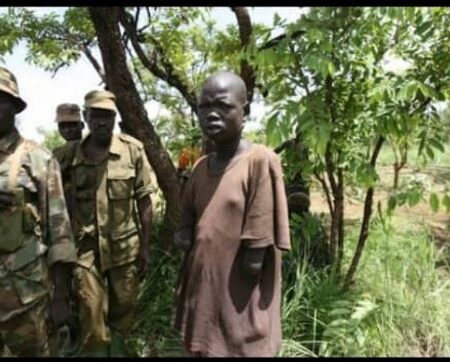



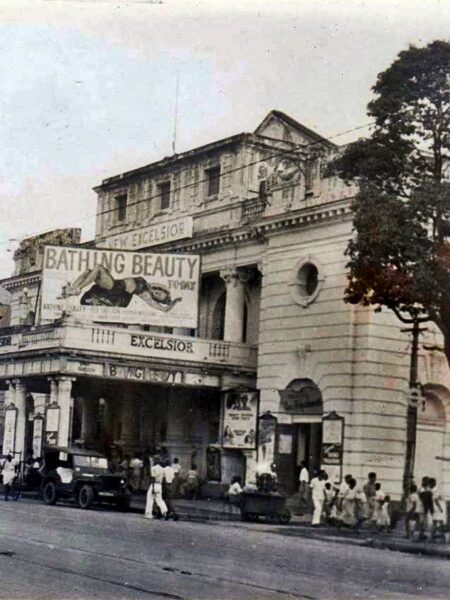
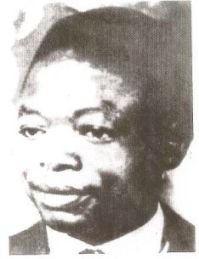
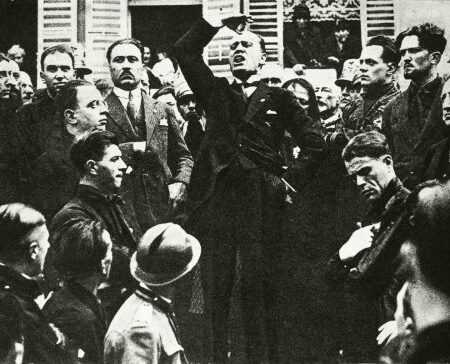
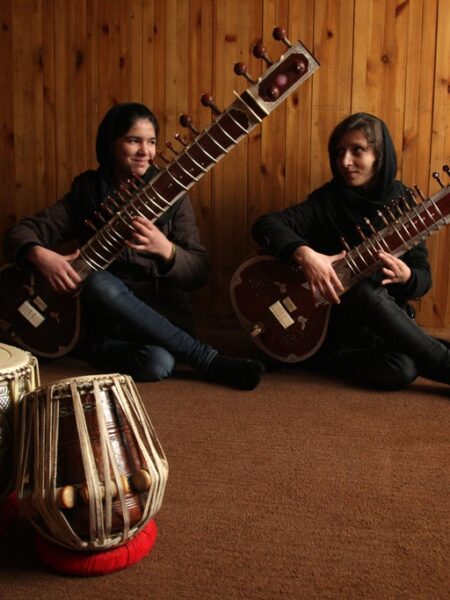
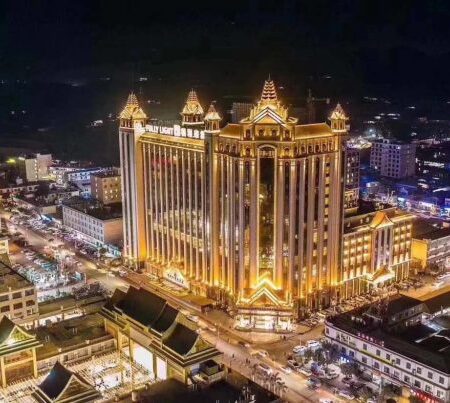
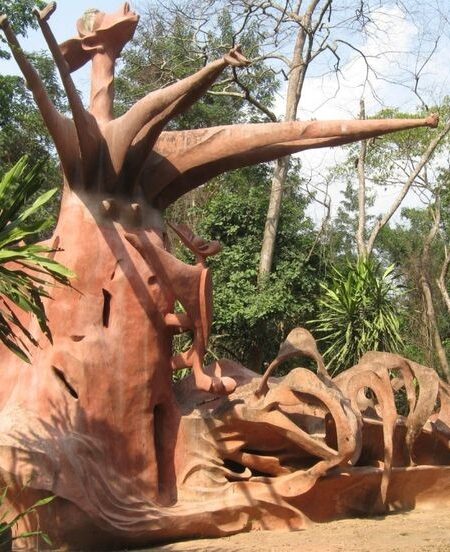
NO MARRIAGE SURVIVES BY FORCE OR COERCION RATHER BY MUTUAL RESPECT AND LOVE. A FORCED MARRIAGE SOON OR LATER DEVELOPS CRACKS AND EVENTUALLY SPLITS! IF A HUSBAND AND WIFE DISAGREE ON MANY BASIC ISSUES, THE BEST FOR THEM IS TO GO THEIR SEPARATE WAYS BUT MAY STILL REMAIN FRIENDS. I GUESS THIS COULD BE AN ANSWER TO THE BIAFRA-NIGERIA QUESTION!
Impressive exposè
Detailed and enlightening.
Thank you
Even a dull brain can grasp this piece fully. Thanks for sharing.
Nice and very coherent piece laid with facts
A beautifully written and engrossing piece! I appreciate how the movement and its effects were broken down and explained, from its inception to revival, and ultimately, its spiral out of control.
Your research is well-appreciated.
Right from the intro, its clear that a whole lot of work was put into this piece.
This is Amaaazing. Excellent research work and analysis.